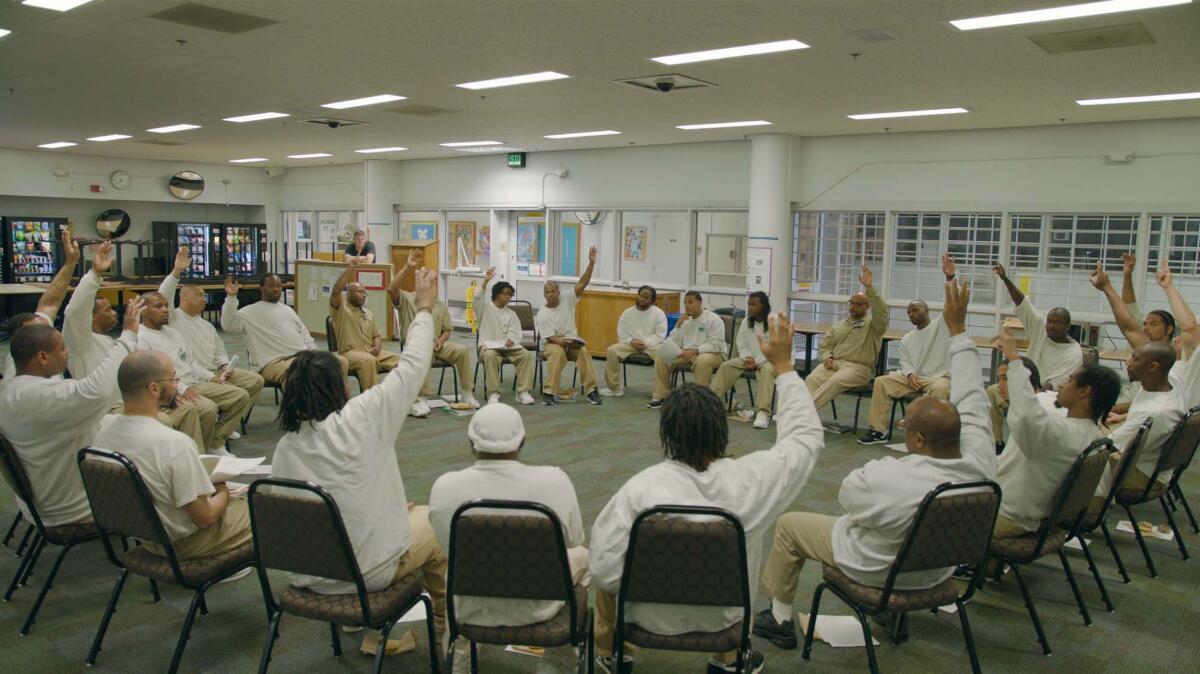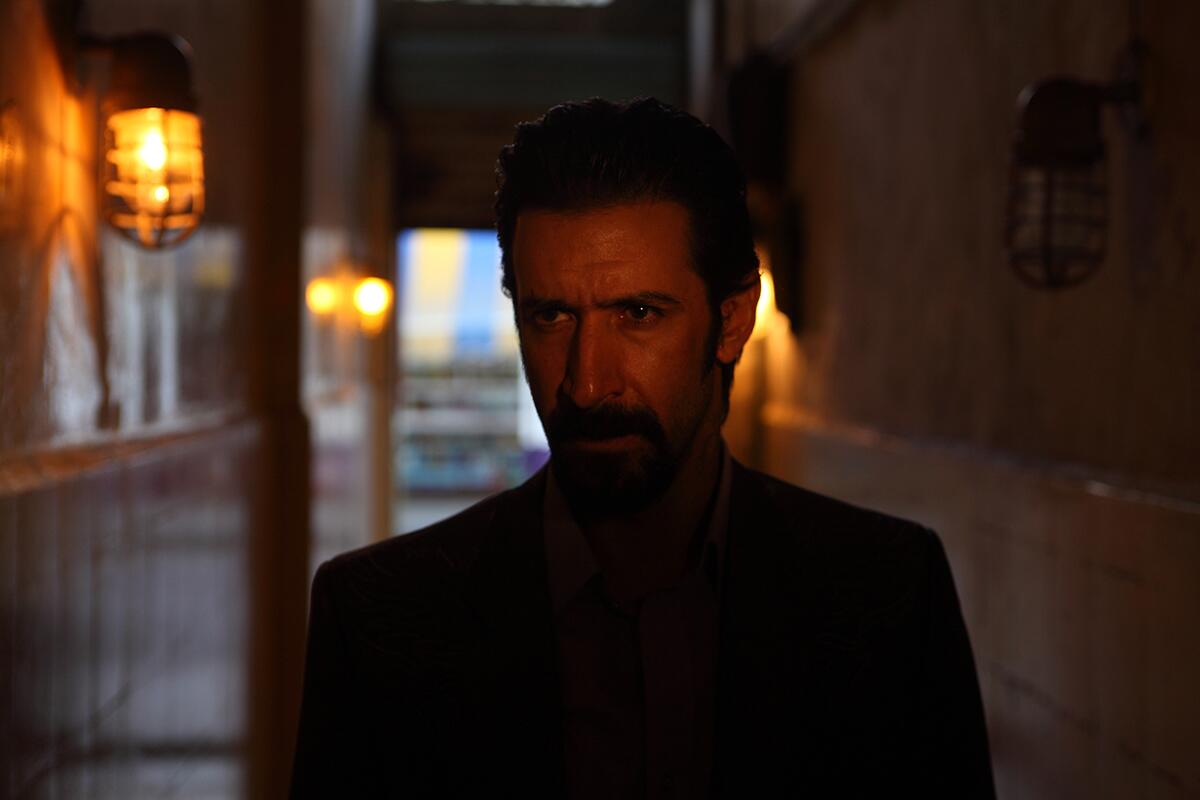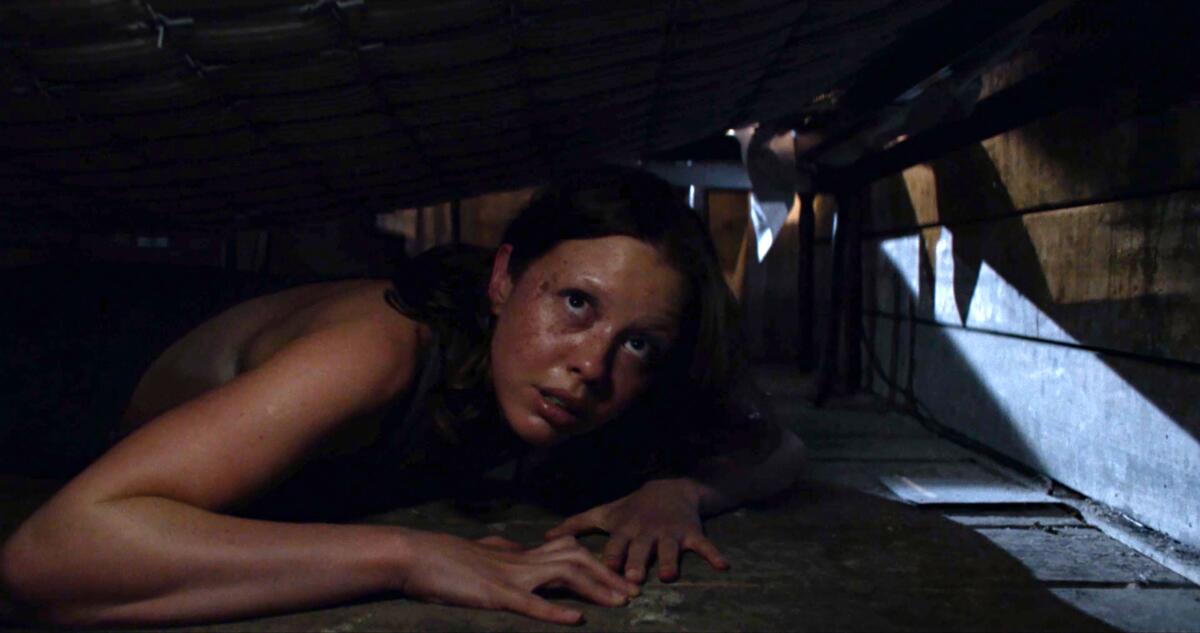Documentary probes hope for prison lifers, plus more movies to watch this weekend

- Share via
‘Since I Been Down’
In the 1990s, the rise of crack cocaine and an increase in gang violence stoked what became a national anti-crime hysteria, resulting in news stories that painted some drug-dealers as “super-predators,” which in turn prompted legislation that sent kids to prison for life. Gilda Sheppard’s documentary “Since I Been Down” looks at how this crackdown devastated a generation of Black and Latino kids in Tacoma, Wash., as aggressive policing and the introduction of “three strikes” laws drove guilty people and their casual acquaintances off the streets and into jail, with no possibility of parole.
Sheppard tells this story along two parallel tracks. Part of the film is a flashback to the ‘90s, with personal photographs, reflective interviews and images from old newspapers cut together to show how the widespread anxiety about rampaging, inhuman gangs contrasted with what was actually happening in Tacoma’s poorer neighborhoods. Behind the mug shots on the front page were underprivileged children, who had been drawn to a life of crime by the promise of money and a feeling of community.
For the record:
6:53 a.m. May 30, 2022An earlier version of this article incorrectly stated that the film version of “Flower Drum Song” came out on 1965. It was released in 1961.
But the real point of “Since I Been Down” — and what makes the movie so powerful — are the scenes that show these still-incarcerated men and women today. Stuck in institutions that have shown little to no interest in rehabilitating lifers, these ex-gangsters have educated themselves and joined support organizations, effectively re-creating themselves as potentially productive members of society — but only if the society that threw them away 30 years ago ever decides to take them back.
‘Since I Been Down.’ Not rated. 1 hour, 45 minutes. Available on VOD
‘There Are No Saints’

The story behind the revenge thriller “There Are No Saints” is twistier than the movie itself. Originally titled “The Jesuit,” the film was written by the accomplished filmmaker Paul Schrader to direct himself more than a decade ago, with a cast that according to the showbiz trades at the time would’ve included Oscar Isaac, Willem Dafoe and Michelle Rodriguez. The project fell through but the script survived, and was eventually brought to the screen by director Alfonso Pineda Ulloa, who showed a cut to Schrader as far back as 2014.
The finished film (which has reportedly gone through further changes over the last eight years) stars José María Yazpik as Neto Niente, a hitman who embarks on a violent mission across Texas and Mexico after a crime boss goes after his family. Joined by a stripper named Inez (Shannyn Sossamon) and occasionally aided by a kind of “fixer” named Carl (Tim Roth), Neto wreaks havoc on his way toward one big boss (Neal McDonough), only to discover there’s another (Ron Perlman) he has to take down to get satisfaction.
In the abstract, “There Are No Saints” is of a piece with Schrader’s work on pictures like “Taxi Driver” and “Hardcore,” in that it’s about a grimly obsessive man whose hero complex causes more problems than it solves. But the overall vibe is more pulpy than arty; and whether it’s due to the convoluted behind-the-scenes situation or not, the movie feels choppy, with even the more visceral scenes of torture coming off as disconnected from any deeper meaning. “There Are No Saints” is like a ghost film, drifting in from the past to our present — still haunting in its way, but hazy about its mission.
‘There Are No Saints.’ R, for strong and disturbing violence, language throughout, sexual content, nudity and some drug use. Running time: 1 hour, 39 minutes. Galaxy Theatres Mission Grove, Riverside; also on VOD
—
‘Zero Contact’
Early in the pandemic, a lot of talented and driven filmmakers tried to make the best of a bad situation, working around social distancing protocols to tell stories they hoped would challenge and entertain the millions stuck at home. That same impulse surely drove the creative team behind the science-fiction drama “Zero Contact” — even though their movie is ultimately more confounding than inspiring.
Anthony Hopkins plays Finley Hart, a recently deceased tech guru who made his fortune in data mining. When his underlings start receiving strange video messages that may be from Finley, they’re unsure if they should execute their late boss’ commands or if this is some sort of AI-generated glitch that could lead to disaster. The ensuing deliberations take up the bulk of “Zero Contact,” as a large assortment of characters — calling in from 16 countries — bark at each other through their computer screens.
Director Rick Dugdale does an admirable job of keeping the cast’s energy up; and the actors do what they can with dialogue that mostly consists of convoluted jargon, involving speculation on topics including machine-learning and time travel. Nevertheless, “Zero Contact” — shot largely via Zoom — comes across more like an interminable conference call than the edge-of-the-seat thriller it’s supposed to be.
‘Zero Contact.’ Rated R for some violent content and brief language. 1 hour, 37 minutes. Available in select theaters and on VOD
—
‘The Quest: Nepal’
Alex Harz’s documentary “The Quest: Nepal” is both a straightforward first-person mountain-climbing narrative and an admirable attempt to honor the culture of Mt. Everest’s local communities. The Everest-climbing sections of the film go through the familiar stages of these kinds of stories, as Harz and his team move from base camp through the various phases of the ascent, while dealing with altitude sickness, cold weather and treacherous terrain. The video they get from the summit is, of course, beautiful. But the more interesting parts of “The Quest” involve Harz’s conversations with his sherpa, part of the filmmaker’s larger insistence on including the people who often get left out of Everest sagas. Though it has a polished look, “The Quest” does at times feel more like an expensive YouTube vlog than a proper documentary. Still, it works fairly well as a compact and personally meaningful history of humanity’s Everest obsession.
‘The Quest: Nepal.’ Not rated. 1 hour, 10 minutes. Available on VOD
Streaming
“Navalny” is a documentary about Alexei Navalny, the Russian dissident who has been one of Vladimir Putin’s most vocal and popular opponents in recent years. Directed by Daniel Roher, the film covers Navalny’s political activism via the story of his recovery from a mysterious 2020 poisoning. Available on HBO Max
“We Feed People” is a documentary by Ron Howard about Chef José Andrés, who in addition to all of his accomplishments as a restaurateur and culinary celebrity has helped hungry people across the globe over the last decade via his nonprofit World Central Kitchen. Howard captures some of the more remarkable moments from Andrés’ mission, which has seen him and his team of volunteers show up with food in the immediate wake of disasters, despite logistical difficulties and tricky politics. Available on Disney+
Available now on DVD and Blu-ray

“X” is the horror auteur Ti West’s best film in years: a riff on ‘70s exploitation cinema that follows a ragtag band of pornographers who get into life-threatening trouble when they surreptitiously try to make a movie on an old Texas couple’s farm. Mia Goth is terrific in a dual role: as the would-be starlet Maxine Minx and as the elderly Pearl, who is fascinated and disturbed by what these kids are doing. Lionsgate
“Flower Drum Song,” the Oscar-nominated 1961 movie adaptation of Rodgers and Hammerstein’s hit Broadway musical based on the novel by C.Y. Lee, follows a young Hong Kong-born woman (Miyoshi Umeki) adjusting to life in San Francisco’s Asian American community. The new Blu-ray edition includes a commentary track featuring co-star Nancy Kwan, plus extensive featurettes about the making of a movie that over the years has been seen as equal parts problematic and groundbreaking. KL Studio Classics
More to Read
Only good movies
Get the Indie Focus newsletter, Mark Olsen's weekly guide to the world of cinema.
You may occasionally receive promotional content from the Los Angeles Times.










